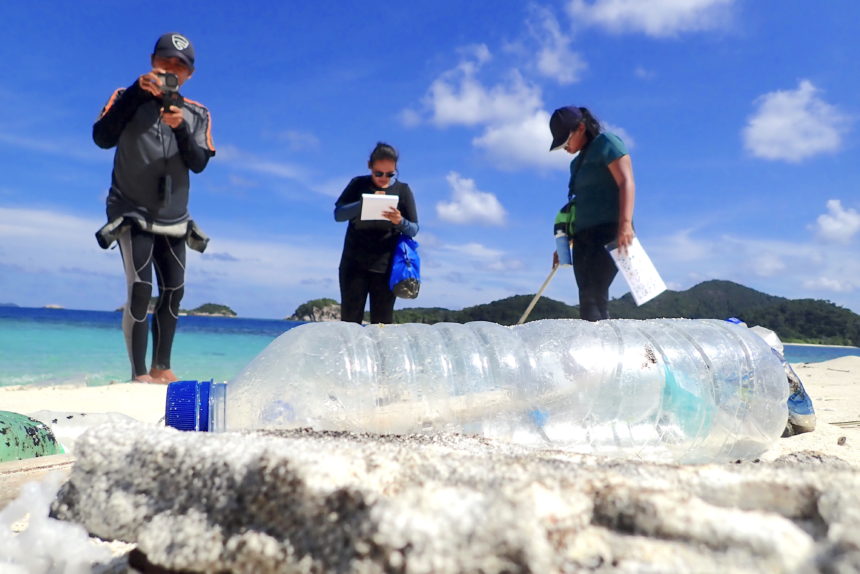Plastic bottles, flip-flops and disposable masks washed up on uninhabited islands are a common sighting whenever we do our marine conservation job in and around Kiabu area. Even more staggering, these marine debris don’t only come from Indonesia. The geographical location of Anambas Islands that is directly facing the South China Sea and located not too far away from neighboring countries, has caused lots of plastic waste of foreign origin to pile up on the remote, small islands.
Due to its remoteness, nobody would have ever found out about these mountains of garbage, except the Kiabu residents who don’t have the means and capabilities to handle the waste. It’s a pervasive issue in the area without no one claiming responsibility for it.
To push for a change to the government and industries producing these waste, we realize that the first thing we have to do is to create a marine debris database to be presented as evidence. Currently, there’s not a single data on marine debris in the Anambas Islands.
We work together with Plastic Free Ocean Network, a voluntary-based platform for coastal waste observers, to collect the data and then later will submit it to their national database.
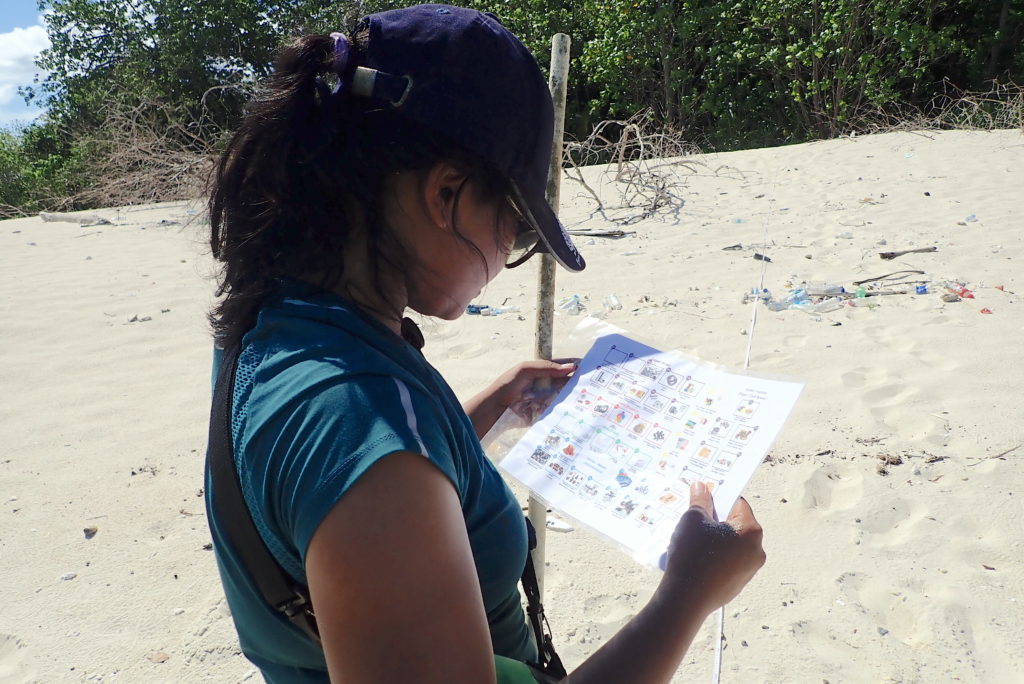
Our focus for the data collection is on three locations in Kiabu area: Hiu Island, Marung Kecil Bay and Bala Pasir Bay, we choose these three locations as they represent the main points of a compass.
It takes us one whole day to collect the data, and we do this for six months. Traveling to and from the three locations is already time-consuming and then we have to spend approximately one to one-and-a-half hours in each location for the data collection.
From the data we’ve collected so far, we conclude plastic waste that have come ashore are mostly originated from Southeast Asian countries and China.
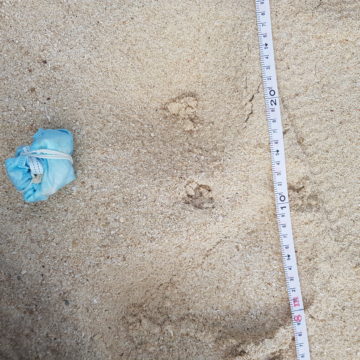
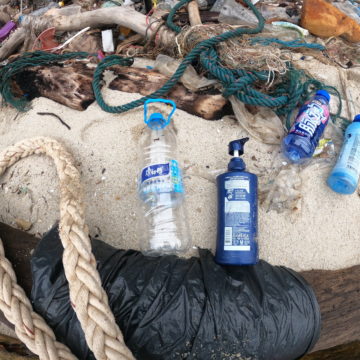
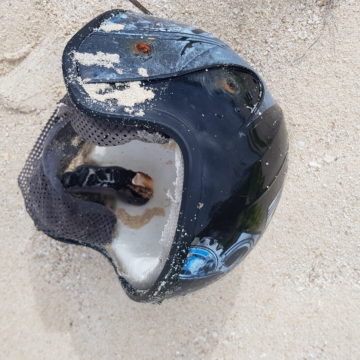
There are many different variations of marine debris that we have discovered, ranging from food wrappers, plastic bottles to styrofoam, some are even decades old. We quite often also find discarded nets, fishing gears and life vests that have been left abandoned in the ocean by irresponsible fishermen.
Seeing all of these waste around, of course we can’t just leave them after we’re done with our data collection. After a day’s work, we always take as much debris as we can and bring them to Kiabu village to be managed properly at our Recycling Centre. The marine debris either goes to our Waste Bank activity or is used for upcycling activities that we do together with the Kiabu community.
We believe the best way to handle marine pollution is to prevent man-made trash from getting into the ocean in the first place. To do so requires clear regulations on waste from the government, holding companies accountable for the pollutions that they create, and educating the public on waste issues and management. By creating a comprehensive marine debris database in Anambas Islands, we can better develop the laws and solutions to tackle the issue on regional, national and even international scales.
